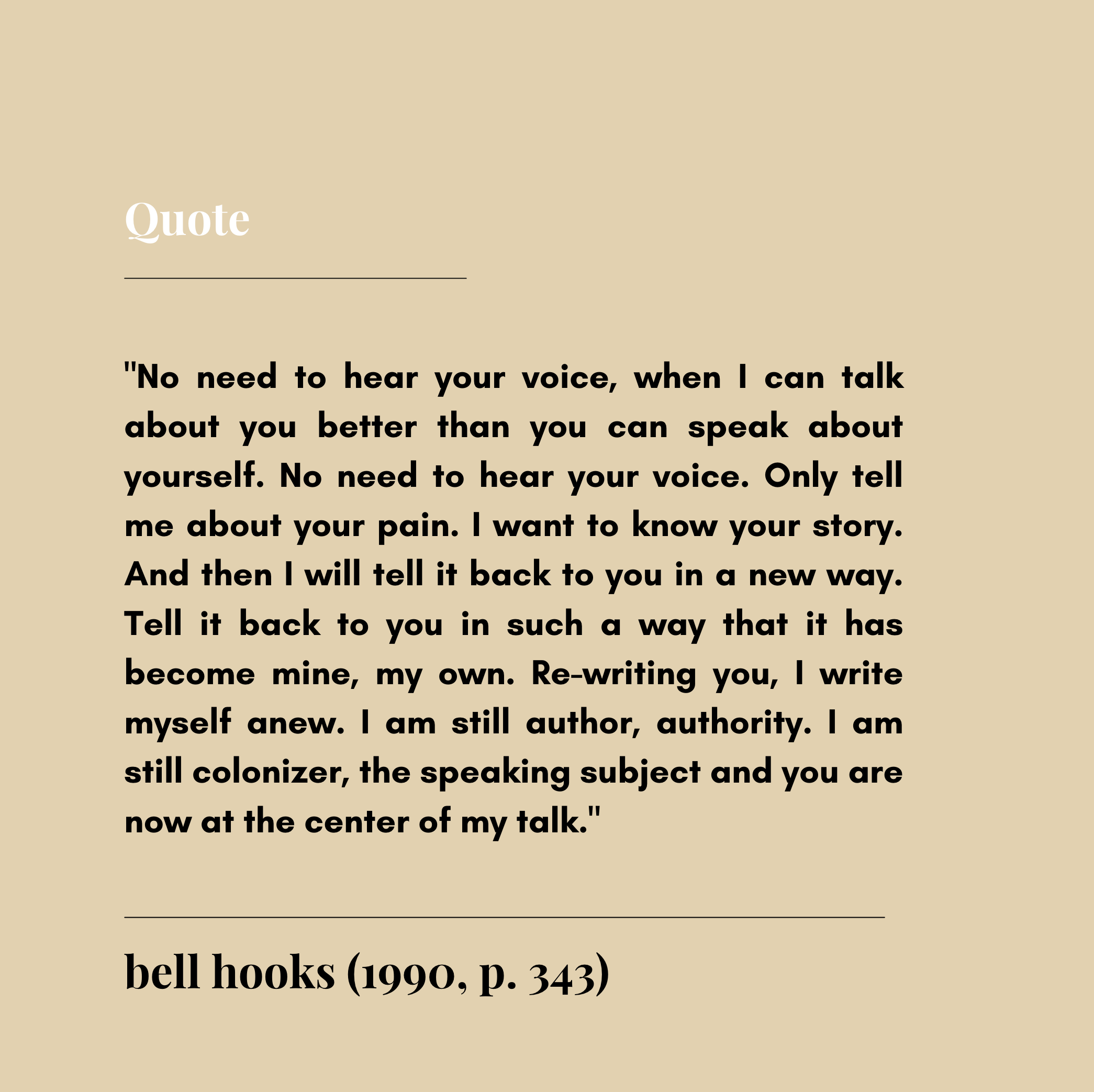They want you to have a voice.

Giving voice, passing the mic, giving agency are phrases that have become common, at least on the paths I travel. The reference is usually related to enabling someone, often from a marginalized population, to share their authenticity (or perhaps perception of their authenticity). While there is value in this, I try to be cautious and cognizant of the politics of power encapsulated in these concepts. I am also questioning whether we are really prepared with what comes with having a voice.
Today as I was thinking through this concept of voice, I saw a quote from bell hooks that aligned with my thinking, and of course took me off task for about two hours as I dug further into her work.
No need to hear your voice, when I can talk about you better than you can speak about yourself. No need to hear your voice. Only tell me about your pain. I want to know your story. And then I will tell it back to you in a new way. Tell it back to you in such a way that it has become mine, my own. Re-writing you, I write myself anew. I am still author, authority. I am still colonizer, the speaking subject and you are now at the center of my talk. bell hooks (1990, p. 343)
Having voice or empowering someone to use their voice should mean letting them speak in their own ways, even if that does not align with yours. Except this is not always what happens. It is similar to being open to ideas as long as those ideas align with yours. If you really want someone to have a voice, you have to be okay with the person using that voice to disagree with you or even speak against you. Otherwise, it is not genuine to want their voice. You want their voice to parrot yours.
I think this is encapsulated in the eloquent words of bell hooks I quote above. We should let those we call marginalized have their voice, let them speak their authentic truth, to speak of their suffering, their marginalization, their resistance, as well as their victories the way they want. In other words, the voice that makes sense to the person, not how we want to hear them. Anything short of that is just lip service.
Reference
hooks, b. 1990. Marginality as a site of resistance. In R. Ferguson, M. Gever, T Minh-ha & C West (Eds), Out There: Marginalization and Contemporary Cultures, MIT, Cambridge, MA, pp. 341–343.


You have stated so poignantly the need to listen, not judge and be open to voices of the marginalized. Hopefully, people will heed this gentle message.